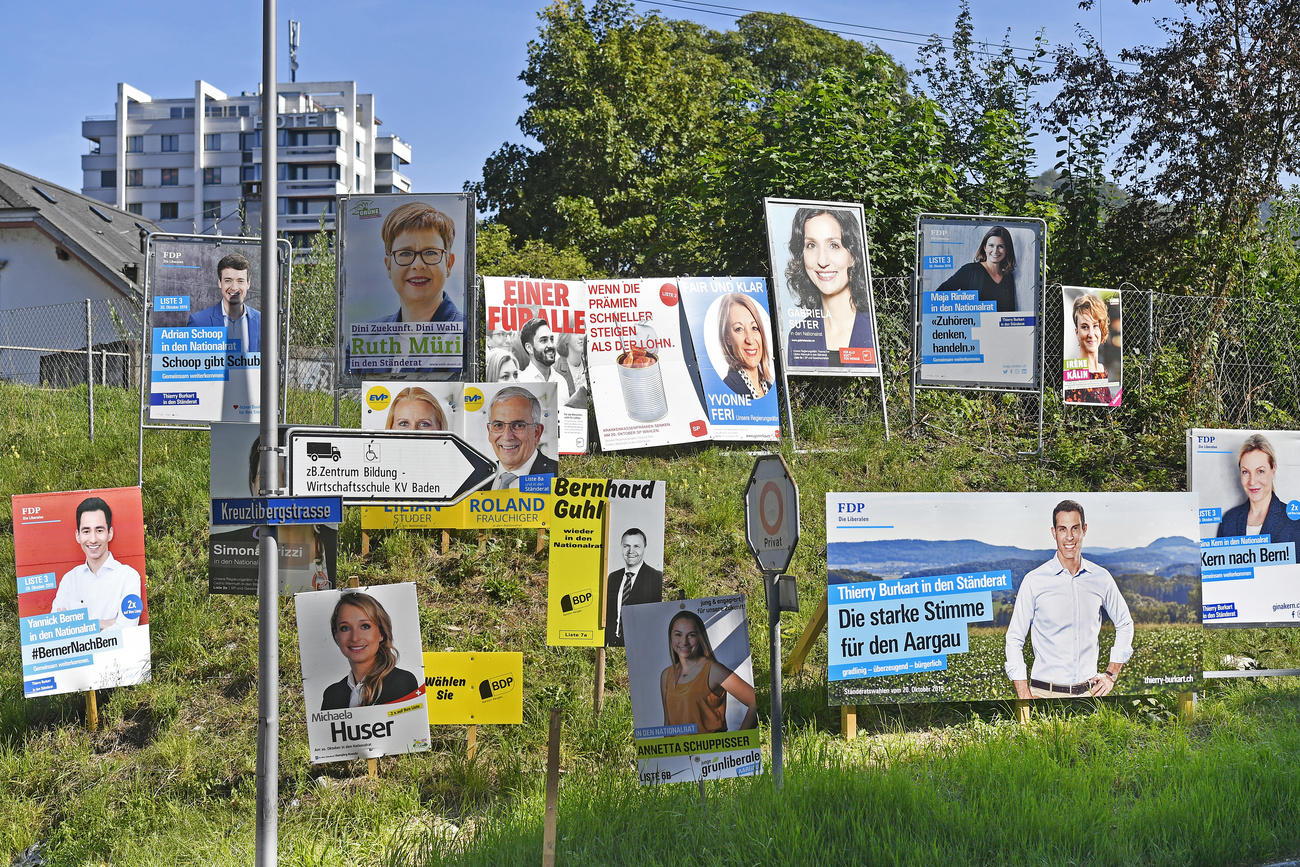Swiss elections: Landslide Green gains tip parliament to the left

Green parties have made historic gains at the expense of those to the right and the left in elections to the Swiss parliament.
Final results show the left-wing Green Party winning 13% of the vote for the House of Representatives – up nearly 6% on 2015 and their best result ever. The centrist Liberal Greens also increased their share of the vote to 7.9% from 4.6%.
The right-wing People’s Party remains the largest group in the House ahead of the left-wing Social Democrats.
Overall, the left and the centre have gained ground, prompting speculation about a reshuffle of the multi-party government.
“People want a more environmentally-friendly policy and the result of the vote should also be reflected in the government,” said Green Party president, Regula Rytz, on Sunday.
The seven-member executive is currently made up of members of the main four parties, but not the Greens.

More
Will the Greens go for a government seat?
Historic moment
“The spectacular gains for the Greens are a real surprise, particularly in the French-speaking part of the country,” says political scientist Lukas Golder of the leading GfS Bern research and polling instituteExternal link. “Also the Liberal Greens have done much better than expected.”

More
Why this Swiss election will go down in the history books
He says the shift to the Greens in all the three language regions is a historic event for Swiss politics.
“Swiss voters were concerned about climate issues and want parliament to act accordingly,” Golder told Swiss public television SRF.
Environmental concerns dominated campaigns in the run-up to Sunday’s vote. Numerous street protests demanding action on climate change took place across the Switzerland over the past ten months.
Losers
The leading right-wing Swiss People’s Party and the left-wing Social Democrats lost voter support – down 3.6% and 2.2% respectively – compared with 2015.
Among the other two main parties, the centre-right Radical Liberal Party as well as the centrist Christian Democrats have suffered a slight setback.
PLACEHOLDER
More women
The Greens have taken 28 House seats, more than doubling their representation and placing them ahead of the Christian Democrats and only one seat behind the Radicals.
The number of female parliamentarians has risen to 85 in the House, according to official results. That’s 10% more than in the outgoing parliament.
However, none of the more than 70 expatriate Swiss candidates was elected.
Turnout was 45.1%, according to the Federal Statistics Office, down from 48.5% in the previous elections in 2015.
German-language abbreviations used.
BDP – Conservative Democratic Party; CSP – Christian Social Party of Switzerland; CVP – Christian Democratic Party; EVP – Protestant Party; FDP – Radical Liberal Party; GLP – Liberal Green Party; Grüne – Green Party; Lega – Lega dei Ticinesi; MCG – Geneva Citizens‘ Movement; PdA – Communist Party; SP – Social Democratic Party; SVP – Swiss People’s Party. “übrige” – all remaining parties
Senate
In the elections to the 46-member Senate, the Greens have won at least two seats, while the People’s Party and the Social Democrats lost at least one seat each, according to partial results.
Run-off elections will be held next month in 14 of the 26 cantons since candidates failed to win an absolute majority of votes.
That means the results of the below graphic will be incomplete until the run-off elections have taken place.
German-language abbreviations used. CVP – Christian Democratic Party; FDP – Radical Liberal Party; Grüne – Green Party; SP – Social Democratic Party; SVP – Swiss People’s Party; parteil. – No party, but affiliated with the SVP.
The Christian Democrats and the Radicals traditionally hold a clear majority in the Senate. Under the parliamentary system in Switzerland, both chambers have equal powers.
The new parliament will meet for the first time at the beginning of December when it is due to elect the government for the next four years.

More
How parliamentary elections work in Switzerland

In compliance with the JTI standards
More: SWI swissinfo.ch certified by the Journalism Trust Initiative














You can find an overview of ongoing debates with our journalists here . Please join us!
If you want to start a conversation about a topic raised in this article or want to report factual errors, email us at english@swissinfo.ch.